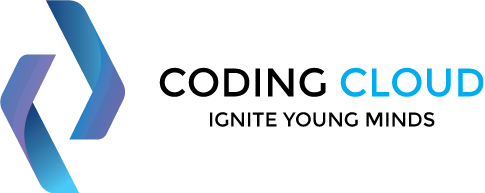
Durations: 40 hours
Lectures: 98
Students: Max 5
Level: All Levels
Language: English
Certificate: Yes
Data Science Training Course
Download PDF
What Will I Learn?
-
Introduction to data science and data analysis

-
Statistics and probability for data analysis

-
Data cleaning and preprocessing

-
Data visualization and storytelling

-
Machine learning algorithms and techniques

-
Deep learning and neural networks

-
Ethics and privacy in data science

-
Advance Excel

Course Schedule
-
8 - Week Program

-
3 Sessions a Week

-
1 Hour for Each Session

-
The Next Session Begins Every Monday

ENROLL NOW
Access this course now
Material Includes
-
Certificate of Completion

-
Access on Mobile & Laptop

-
Notes

Audience
-
Aspiring Data Scientists

-
Business Analysts

-
Data Engineers

-
Software Developers

-
Anyone Interested in Working With Data

Course Content
Python Real-Time IDEs
Different Modes of Python
First Python Program
Python File Extensions
Python Data Types
Command Line Arguments
Python Operators
Control Statements
Strings
List Data Structure
Working with Python Arrays
Python Tuples
Set Collection
Dictionary Collection
Functions
Python Modules and Packages
OOPs – Classes & Objects
Exception Handling & Types of Errors
Regular Expressions
Files in Python
Date & Time Module
Python Data Base Communications(PDBC)
Data Analytics Modules
Python NumPy
Python Pandas
Exploratory Data Analysis (EDA)
Supervised Machine Learning (Regression)
Logistic Regression
Ordinal Regression
Naïve Bayes Classifier Algorithm
Support Vector Machine
Decision Tree
K-Nearest Neighbor
Random Forest
Bagging and Boosting
Dimensionality Reduction
Dimensionality Reduction
ARIMA, SARIMA and ARMA
Clustering
Hyper Parameter Optimization
Artificial Neural Network
Optimization Techniques
Recurrent Neural Network (RNN)
Convolution Neural Network (CNN)
Auto Encoders
Tensorflow
OpenCV (Image processing & video Processing)
Conditional Formatting
Remove Duplicates
XLOOKUP
IFERROR
MATCH
COUNTBLANK
DAYS and NETWORKDAYS
RANK
SUMPRODUCT
Matplotlib Visualization
Pre-processing Algorithms
Regression
Linear Regression
Logistic Regression
Why Tableau?
History of Tableau
Characteristics of Tableau
Installation Step
Different Versions of Tableau
What is VizQL
Use of VizQL in Tableau
Tableau Architecture and its Component
Machine Learning Modeling – Navie Bayies
Word Net and Synsets
Transformation Models – BERT
LSTM Model – RNN
Corpus
Regular Expressions For Over Pattern
Understanding Chat Bots Architecture
Chat Bot Development
Developing Chat Bot Using Python
Developing Chat Bot Using Cloud
Measure of Center
Normal Distribution
Standard Deviation
Python range() Function: Built-in
Inferential Statistics
P-value
ANOVA
Chi-Square Test
ARIMA
Correlation
What is Data Science ?
Data science is a multidisciplinary field that involves the collection, analysis, interpretation, and utilization of data to extract insights, make decisions, and solve problems. Data science combines elements of statistics, machine learning, domain expertise, and programming to extract meaningful patterns, trends, and insights from large and complex datasets.
Data science encompasses various stages of the data lifecycle, including data collection, data preprocessing, data analysis, and data visualization. It involves the use of various tools, techniques, and algorithms to clean, analyze, and interpret data, and derive actionable insights. Data scientists often work with data from diverse sources, such as structured and unstructured data, and use statistical and machine learning techniques to extract knowledge and make predictions.
Data science finds applications in various industries and domains, including but not limited to business, finance, healthcare, marketing, social sciences, sports, and technology. Data scientists use their skills to solve complex problems, make data-driven decisions, develop predictive models, optimize processes, and drive innovation.
In summary, data science is the interdisciplinary field that involves the use of data, statistical and machine learning techniques, and domain expertise to extract insights and solve problems in diverse domains. It is a rapidly growing field that is transforming industries and enabling data-driven decision-making.
Read More
Uses of Data Science in The Industry
Data science has wide-ranging applications across various industries, driving innovation and improving decision-making processes. Here are some specific examples of how data science is used in different industries:
1. Finance and Banking: Data science is used in the finance and banking industry to analyze financial data, identify investment opportunities, optimize risk management, detect fraud, and personalize customer experiences. Data science enables financial institutions to make data-driven decisions, manage risk effectively, and improve customer satisfaction.
2. Healthcare: Data science is used in healthcare to analyze patient data, develop predictive models for disease diagnosis, optimize treatment plans, and conduct drug discovery research. Data science enables healthcare professionals to make more accurate diagnoses, develop personalized treatment plans, and improve patient outcomes.
3. E-commerce and Retail: Data science is used in e-commerce and retail to analyze customer data, optimize pricing and inventory, personalize recommendations, and improve supply chain management. Data science helps e-commerce and retail businesses understand customer preferences, optimize their operations, and provide personalized experiences to customers.
4. Marketing and Advertising: Data science is used in marketing and advertising to analyze customer behavior, segment markets, optimize advertising campaigns, and measure marketing effectiveness. Data science enables marketers to understand customer preferences, target their campaigns effectively, and optimize their marketing strategies for better results.
5. Manufacturing and Logistics: Data science is used in manufacturing and logistics to optimize production processes, forecast demand, manage inventory, and improve supply chain efficiency. Data science helps manufacturers and logistics companies optimize their operations, reduce costs, and improve overall efficiency.
6. Energy and Utilities: Data science is used in the energy and utilities industry to optimize energy consumption, predict equipment failures, and improve maintenance scheduling. Data science helps in optimizing energy production, reducing downtime, and improving the reliability of energy systems.
7. Transportation: Data science is used in transportation to optimize routing, scheduling, and fleet management, leading to improved logistics operations, reduced costs, and better delivery performance. Data science helps transportation companies optimize routes, schedules, and resources, leading to more efficient transportation operations.
8. Telecom and Communication: Data science is used in the telecom and communication industry to analyze customer data, optimize network operations, predict network outages, and improve customer experiences. Data science enables telecom companies to improve network performance, optimize resource allocation, and provide better services to customers.
These are just a few examples of how data science is used in various industries. The applications of data science are vast and diverse, and it continues to play a crucial role in transforming industries and driving innovation in the real world.
Read More
Job Roles and Salaries For a Data Scientist Role
Data science is a rapidly growing field with a wide range of job roles and corresponding salaries. The specific job roles and salaries for data scientists can vary depending on factors such as experience, location, industry, and the size of the organization. Here are some common job roles and average salary ranges for data scientists:
1. Data Scientist: A data scientist typically works on extracting insights from data, building predictive models, and developing algorithms to solve complex problems. The average salary for a data scientist varies depending on experience, but it can range from $70,000 to $150,000 per year or more, with higher salaries for more experienced professionals and those working in top tech hubs like Silicon Valley.
2. Machine Learning Engineer: A machine learning engineer focuses on developing machine learning models and algorithms for specific applications. The average salary for a machine learning engineer can range from $90,000 to $150,000 per year or more, depending on experience and expertise.
3. Data Analyst: A data analyst works on analyzing data, creating visualizations, and providing insights to support decision-making. The average salary for a data analyst can range from $50,000 to $90,000 per year, depending on experience and skills.
4. Business Intelligence Analyst: A business intelligence analyst focuses on analyzing data to provide insights for business operations and strategy. The average salary for a business intelligence analyst can range from $60,000 to $100,000 per year or more, depending on experience and industry.
5. Data Engineer: A data engineer is responsible for designing and building data pipelines, data storage solutions, and data integration processes. The average salary for a data engineer can range from $80,000 to $130,000 per year or more, depending on experience and expertise.
6. Data Scientist Manager or Director: Data science managers or directors oversee teams of data scientists and are responsible for strategic planning, resource allocation, and overall data science initiatives. The average salary for a data scientist manager or director can range from $100,000 to $200,000 per year or more, depending on experience and company size.
It's important to note that these salary ranges are approximate and can vary significantly depending on the specific industry, location, and level of experience. Salaries for data science roles are generally higher in top tech hubs and in industries such as finance, healthcare, and technology. It's always best to research the current market trends and consult reliable salary surveys to get a better understanding of the specific salary expectations for data science roles in your region or industry.
Read More
Data Science Course Details
There are several data science training courses that offer job placement assistance as part of their program. These courses typically provide comprehensive training in data science skills and techniques, along with additional support to help participants secure employment in the field. Here are some key features to look for in a data science training course with job placement:
1. Comprehensive Curriculum: Look for a course that covers a wide range of data science topics, including statistical analysis, machine learning, data visualization, data engineering, and domain-specific applications. The curriculum should be designed to provide participants with a solid foundation in data science skills that are in demand in the job market.
2. Hands-on Projects: A good data science training course should include practical, hands-on projects that allow participants to apply the concepts they learn to real-world problems. These projects can help participants build a portfolio of work that demonstrates their skills and can be showcased to potential employers.
3. Industry-Experienced Instructors: The instructors of the course should have practical experience in the field of data science and should be able to provide guidance and insights based on their real-world experience. Look for courses that have instructors with industry expertise and a strong track record of success in the data science field.
4. Job Placement Assistance: Look for a data science training course that offers job placement assistance as part of their program. This may include resume review, interview preparation, job search support, and networking opportunities with industry professionals. Some courses may also have partnerships with companies or organizations that can provide job placement opportunities.
5. Alumni Network: An alumni network can be a valuable resource for job opportunities and networking. Look for a data science training course that has a strong alumni network, as it can provide opportunities for mentorship, networking, and potential job referrals.
6. Reputation and Reviews: Research the reputation and reviews of the data science training course before enrolling. Look for reviews from past participants and testimonials on the course website or other review platforms to get an idea of the course's quality, effectiveness, and job placement success.
7. Cost: Consider the cost of the data science training course, including tuition fees, additional expenses, and potential return on investment in terms of job placement success. It's important to evaluate the cost in relation to the quality of instruction, curriculum, and job placement support provided.
Remember that job placement assistance is just one factor to consider when choosing a data science training course. It's also important to ensure that the course provides comprehensive and up-to-date training in data science skills and techniques, and that it aligns with your specific career goals and interests. Research and compare different options, read reviews, and choose a reputable data science training course that meets your needs and provides the best opportunity for career success.
Read More




